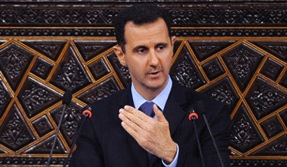I was recently asked to rate the world power’s amount of soft power around the world. The choices were between China, the EU, the United States, and India. Coming from the perspective as an African specialist, I drew this conclusion that caught some of my colleagues by surprise:
It is the country of India that has the highest potential for soft power deployment in emerging markets, specifically in Africa for the following reasons:
- Democracy: With Indian being a model for democracy in developing countries, this gives India the advantage over China in South-South relations. Being able to leverage the democratic ideals (or at least the desire to seem democratic by their constituents) professed by the leaders of emerging markets, India is able to gain in the public opinion in the the target countries. An African leader seeking to increase their perception of leading a representative and transparent government would be better pairing with India rather than China. Additionally, India has watched and tried to keep pace with China in securing resource and raw-material deals with Africa, but has lacked behind the far more ruthless Chinese. This has tainted public opinion of China’s motives especially when they are seen to be supporting despots such as Mugabe, dos Santos, and Bashir. India can follow in behind and appear as a more honest broker
- Diaspora: Two of the largest Indian diasporas exist on the continent in Durban and Nairobi. This has led to great familiarity with Indian culture in South Africa and Kenya. These two countries possess significant resources in minerals wealth and intellectual capital. This relationship between African and Indian businesses and politics thus has a long history in two of the most significant business hubs on the continent. Thus compares to the views of white westerners as colonialists/imperialists and of the Chinese as the new imperialists. Indian values and culture already have a base of diffusion on the continent, which will spread naturally, a significant advantage over China.
This contrasts with some of news stories that show that India is trying to match China with developmental resource-backed loans. However, the ability to relate to one another culturally will be more important in the long term success of engagement with the continent than how big of a loan you can offer.
Here are some noteworthy India in Africa news stories of late:
- India in Africa: Catching Up (The Economist)
- African regional bloc to study Indian anti-graft measures (Two Circles)
- India boosts bid to rival China in Africa (CS Monitor)




